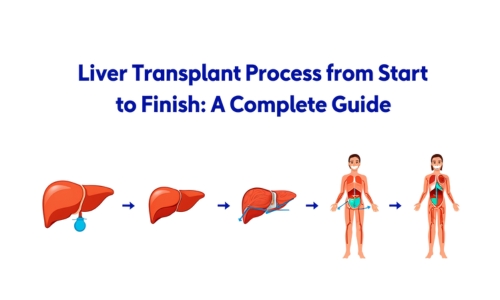The liver transplant process is a complex medical journey that involves more than just the surgery itself. From early diagnosis and preparation to the transplant procedure and post-operative recovery, every stage plays a crucial role in ensuring success. This guide will help you understand each step and provide essential tips for long-term wellness.
1. Understanding When a Liver Transplant Is Needed
The liver is essential for filtering toxins, aiding digestion, and supporting many body functions. When it becomes severely damaged or fails, a transplant may be the only treatment option.
Common causes that may lead to a liver transplant include:
-
Chronic liver disease
-
Acute liver failure
-
Hepatitis-related damage
-
Certain inherited or metabolic disorders
Recognizing these conditions early increases the chances of a successful transplant.
2. Pre-Transplant Evaluation
Before being placed on a transplant list, patients go through a thorough assessment to ensure surgery is safe and appropriate. This may involve:
-
Detailed blood tests to evaluate liver health and donor compatibility
-
Imaging scans such as MRI or CT for structural assessment
-
Heart and lung function testing to ensure surgical readiness
-
Nutritional and mental health evaluations to support recovery
These steps help determine the right timing and prepare both patient and medical team for the procedure.
3. Choosing a Skilled Medical Team
The success of a transplant depends heavily on the expertise of the team performing it. This team often includes:
-
Specialists in liver diseases
-
Transplant surgeons
-
Anesthesiologists
-
Intensive care and recovery nurses
-
Nutritionists and rehabilitation experts
This collaborative approach ensures every stage of care is handled with precision.
4. The Surgical Procedure
Liver transplants usually take between 6 and 12 hours. Key steps include:
-
Administering anesthesia and preparing the patient
-
Removing the damaged liver
-
Placing the donor liver (from a living or deceased donor)
-
Connecting blood vessels and bile ducts
-
Closing the incision and moving the patient to intensive care
The procedure requires advanced skill, strict infection control, and careful monitoring.
5. Recovery After Surgery
Initial recovery often begins in the intensive care unit, followed by a hospital stay. Typical steps include:
-
Continuous monitoring of liver function
-
Medication to prevent rejection
-
Gradual reintroduction of movement and exercise
-
Dietary adjustments to support healing
Patients continue to receive regular follow-up care to ensure the new liver is functioning well.
6. Long-Term Health After a Transplant
Living well after a transplant means maintaining healthy habits:
-
Eating a balanced diet
-
Staying active with safe exercise
-
Avoiding alcohol and harmful substances
-
Attending all follow-up appointments
Consistent care can help ensure the transplanted liver works effectively for many years.
7. Support and Resources for Patients
Transplant recipients benefit from:
-
Peer support groups
-
Counseling services
-
Educational resources on medication and lifestyle adjustments
Having a strong support system makes a significant difference in recovery and long-term wellbeing.
Conclusion
The liver transplant process is a life-changing medical journey that goes far beyond surgery. From recognizing the need to preparing for the operation, navigating the procedure, and committing to long-term recovery, each stage plays a critical role in achieving the best outcome. With the guidance of an experienced medical team and dedication to post-surgery care, patients can enjoy renewed health and a brighter future.
Frequently Asked Questions
How long can a person live after a liver transplant?
Many live for decades when they follow medical advice and maintain a healthy lifestyle.
Is a living donor liver transplant safe?
Yes, when performed in an experienced center, it’s considered safe for both donor and recipient.
How long will I need to wait for a liver transplant?
Waiting time depends on urgency, organ availability, and compatibility.
What foods should I avoid after a transplant?
Avoid raw seafood, undercooked meat, unpasteurized dairy, and high-sodium processed foods.

